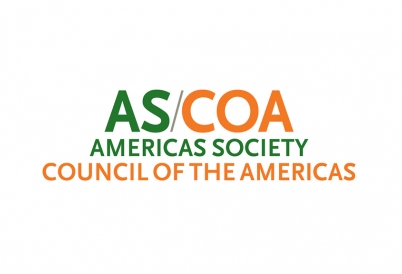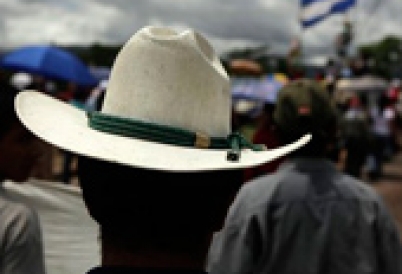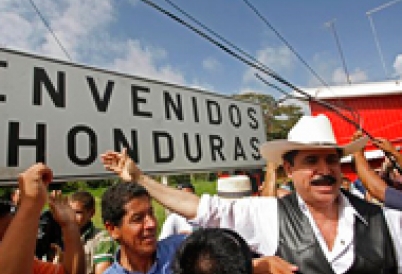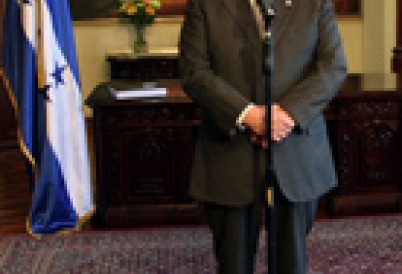"If the United States is going to be a partner with Latin America—a healthy and laudable goal—the aspiring powers of the hemisphere need to shake off their timidity and worn-out rhetoric," write AS/COA's Senior Director of Policy Christopher Sabatini and Kissinger Associates' Stephanie Junger-Moat.
More than six weeks after the overthrow of President Manuel Zelaya the crisis remains unresolved. Leaders from across the Americas continue pressuring the interim government to restore the deposed leader while he travels the hemisphere to make his case. Meanwhile, U.S. officials differ on Washington's stance.
Writing for openDemocracy, Dartmouth's John M. Carey looks at the Latin American trend of holding referendums to pave the way reelection. "[P]residents themselves tend to lack judgment as to when enough is enough," he writes. Adapted from an essay published in the Summer 2009 Americas Quarterly.
The deposed leader, surrounded by press and supporters, stepped onto Honduran soil for half an hour on July 24 and set up camp in the Nicaragua border area the next day. The Honduran armed forces issued a communiqué that supports a proposal to restore him to office, albeit with limited powers.
Police aren't the problem, they're the solution. They just need to be better paid and better trained.
The interim government lifted curfews and announced it may grant amnesty to deposed President Manuel Zelaya if he returns to Honduras. Still, de facto leaders continue to reject international calls for restoring him to office. The two sides will likely continue negotiations mediated by Costa Rica's President Óscar Arias.
In light of the June 28 overthrow of Honduran President Manuel Zelaya, the Council of the Americas hosted a July 9 discussion of the recent political crisis. Panelists debated about factors contributing to the crisis, the U.S. and OAS responses, and the road ahead for Honduras.










